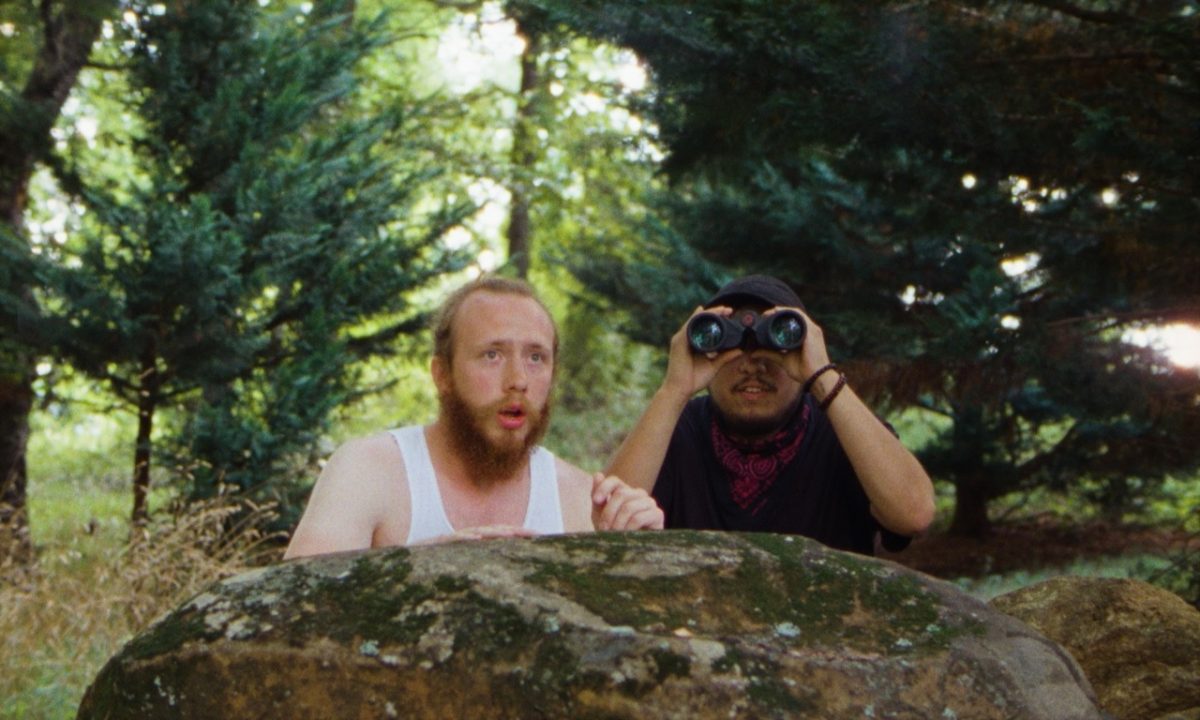Danny Wagner knows he’s a baby in the modern movie biz.
The young filmmaker has worked as a production assistant for major television studios on shows like “Young Sheldon” and as a production coordinator on multiple feature films. But he says he’s still “not there yet” when it comes to making it in Hollywood.
Wagner’s own first feature film, For the Taking, could be the break he’s been looking for. The movie will premiere at the Virginia Film Festival on Sunday.
“The Virginia Film Festival is the first film festival I ever knew, and getting to have our world premiere there is in some ways a climax,” Wagner says. “Its reputation is prestigious, but it also gives movies like ours that are made in the area a chance to shine in a larger venue.”
Wagner, a Charlottesville native and UVA grad, has filmmaking in his blood. Both his parents are documentarians, and he began learning about producing movies when he was “in the single digits.”
The single digits wasn’t so long ago for Wagner—he graduated from UVA in 2018—and his passion for cinema has persisted over the past two decades. He found his voice as an actor in school productions and at Live Arts, and while the university doesn’t have a film department or offer a filmmaking major, Wagner cut his teeth in the media studies department with a film theory concentration and by taking on internships. A work-study he completed with casting and production agency arvold. was particularly enlightening, he says.
“That was an amazing way to understand the film scene not just in Virginia, but along the East Coast and Eastern Seaboard,” Wagner says. “I made a reel of the actors they had in big projects—‘House of Cards,’ ‘Turn,’ and others—and all the talent they had helped cultivate in Virginia really opened my eyes.”
Wagner says For the Taking, a 77-minute heist flick, was a happy accident of the 2020 pandemic. The emerging filmmaker and then-Los Angeles resident was forced back to his hometown of Charlottesville when work dried up. Staying in touch with other industry folks in Virginia, New York, L.A., and beyond, he hatched an idea: Write a script about a guy down on his luck and forced into a caper, cast two unknowns as lead actors, bring in more experienced thespians to guide the newbies, and film the whole thing in rustic 16mm.
The result is an eccentric movie with a raw edge that Wagner believes he was only able to capture using a couple guys new to the silver screen.
“I got really excited about the idea of capturing their little idiosyncratic mistakes to create natural moments,” the filmmaker says. “And I think the natural occurrences make you feel excited for them to succeed. It has been a long, rocky process to get it finished, but it does live by that principle—a spontaneous, authentic, and organic set of characters.”
Wagner also sees For the Taking’s homemade quality as a plus in modern distribution. Could he move the film over to YouTube at some point? Cut the whole thing up and turn it into TikToks? Take it on the road and show it outdoors on projectors? He’s open to anything if it means more people see his movie.
“For the Taking has only taken my money so far, but everyone who has worked on this film has equity in it, and if the film succeeds, we all succeed,” Wagner says. “We all see it as a stepping stone, and I am really happy with what we made. It’s breezy, authentic, and heartfelt. I think there’s an audience for it.”
For the Taking
October 29 | Culbreth Theatre | With discussion





